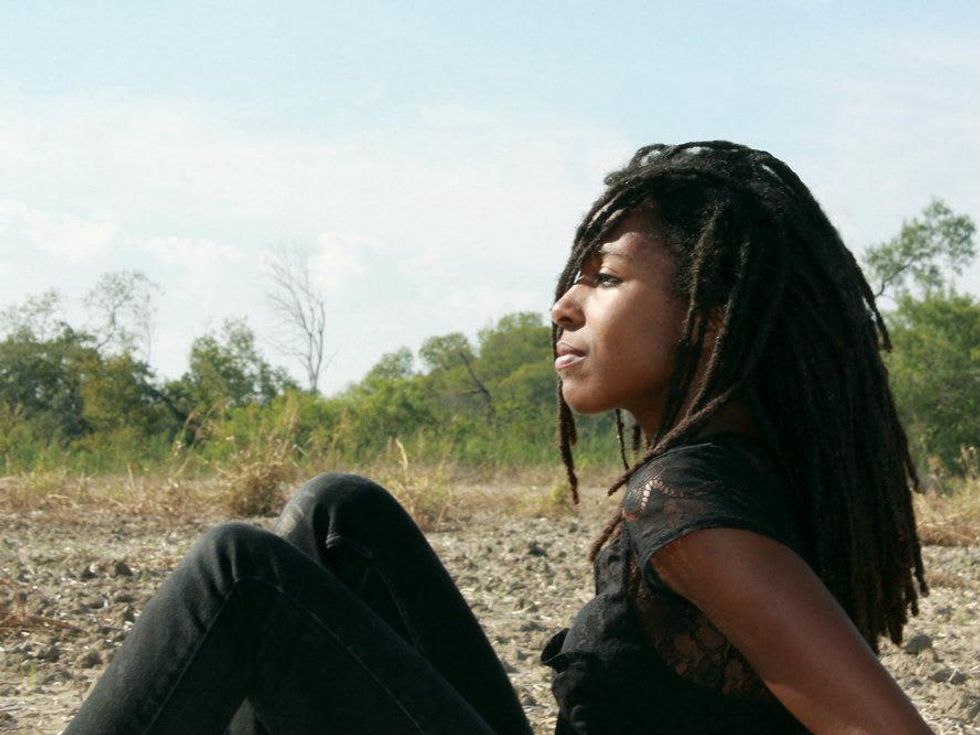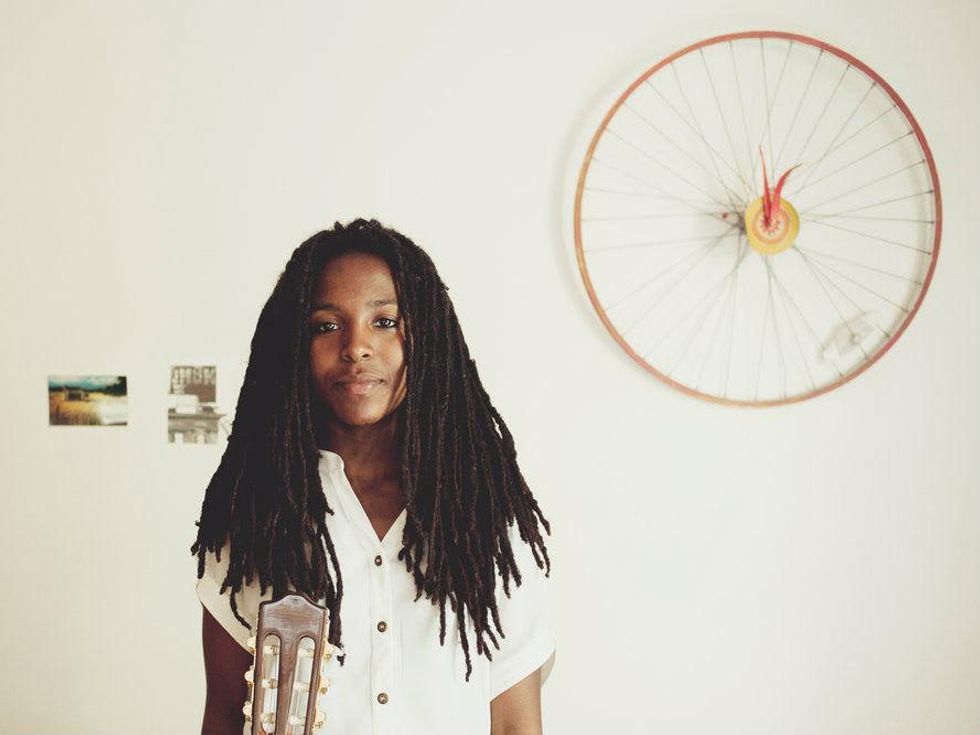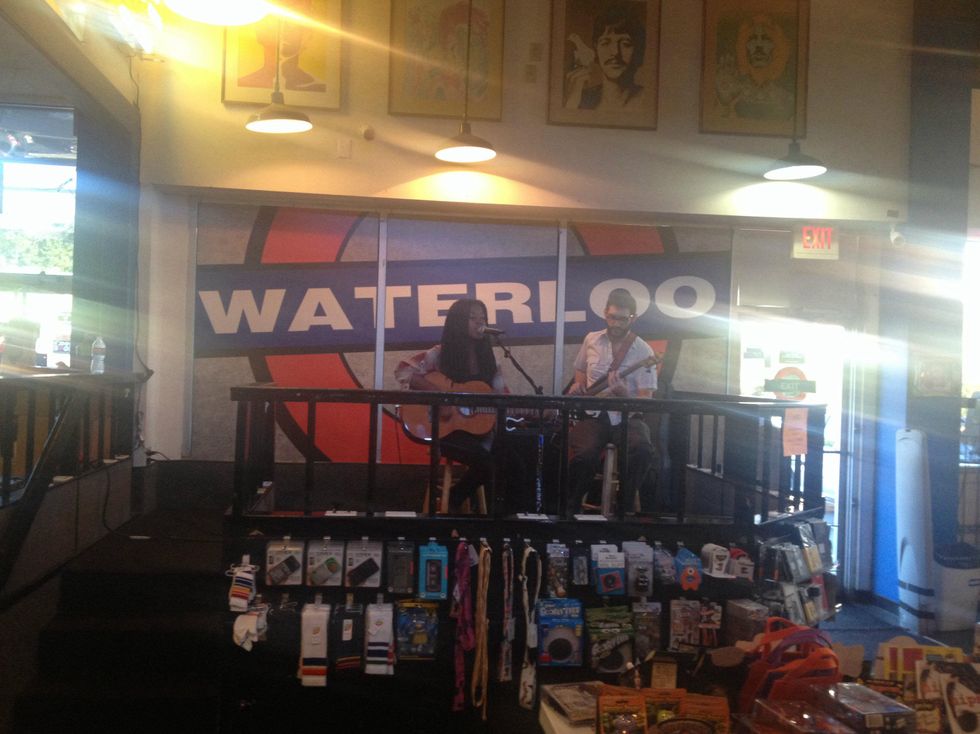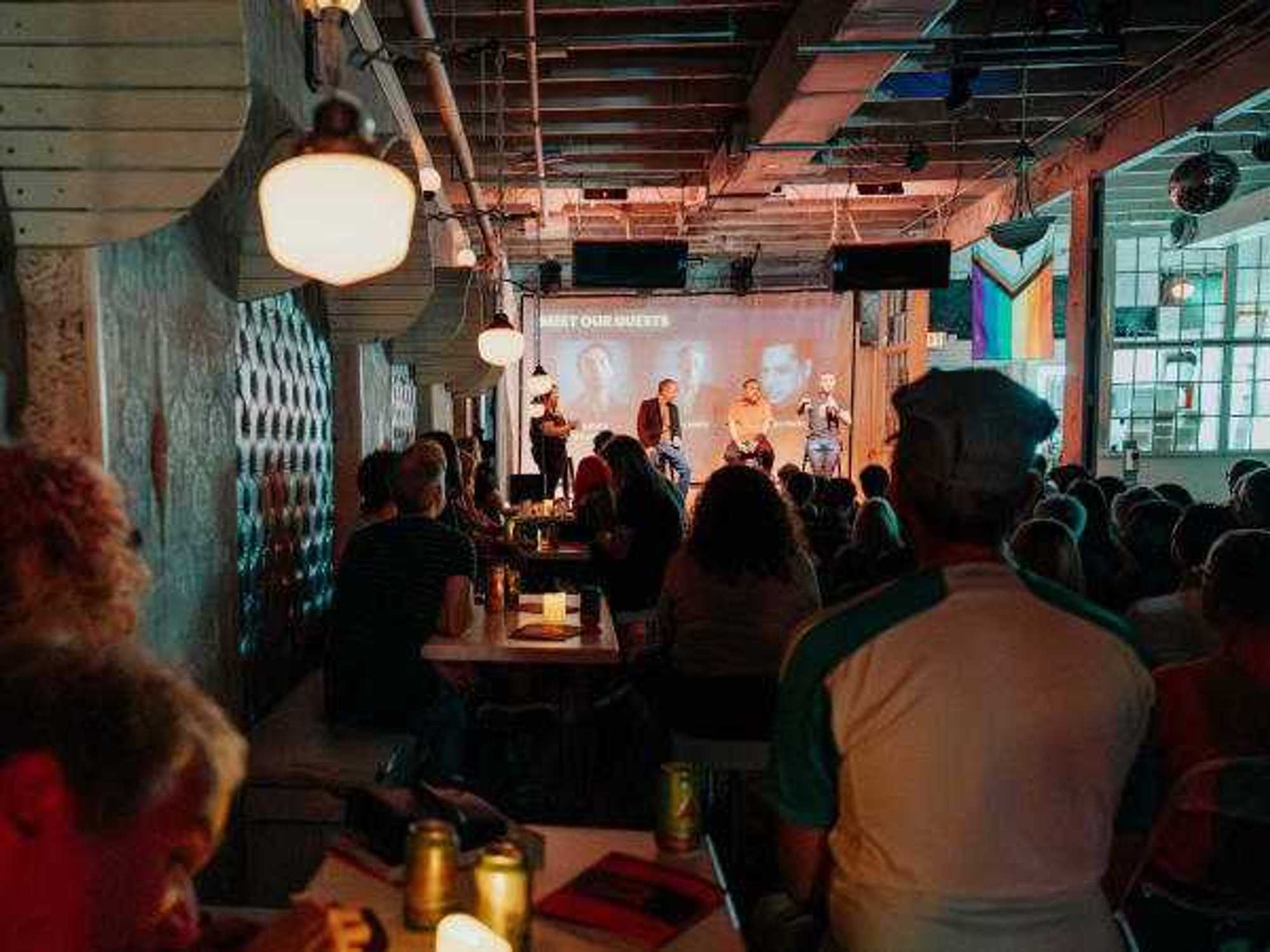Beyond Balmorhea
Balmorhea's Aisha Burns dives into the deep end with solo album Life in the Midwater
There’s no place in Austin quite like Waterloo Records. Never mind that it ranks as one of one of the best record stores in the world or that musical legends have graced the shop’s stage for decades. It’s really the light that makes the space sui generis — a light that’s especially magical on midautumn afternoons. Last month, with late-day sun filtering through high windows, hushed voices and quiet feet milled about the store while local gem Aisha Burns played a collection of songs off of her debut record, Life in the Midwater.
Her music fit the scene entirely. Burns is best known for her part in Balmorhea, where she’s played violin for years. This solo album is a departure, highlighting instead the guitar and vocal skills she had previously displayed in the company of friends. Those are ethereal and haunting vocals, and each song on Life in the Midwater is full of space and reverb. Put together, they result in an work of searing emotion and deep thought.
“When something’s really simple, you can give a note room to reverberate and just be.” — Aisha Burns
On November 12, Burns kicked off a US tour that brings her back to Austin to perform at Mohawk on November 26. We caught up with Burns to talk about the record, how she uses writing to make sense of feelings and why she’s happy to call Austin home.
CultureMap: You’re from San Antonio, but you’ve been in Austin for a while. What’s kept you in Austin?
Aisha Burns: When I was finishing school, I already knew that I was going to play with Balmorhea. For a while, the band was spread out, and we weren’t always in the same place. Now we’re all based here, and it’s been really great to have that. In Austin, it’s easy to find a supportive community and the time to work together.
CM: How does it feel performing alone on stage, as opposed to being part of a larger ensemble like Balmorhea?
Aisha Burns: It’s a very different experience being alone on stage. I find I tend to take things more personally. When I’m with six other people, there’s so much more support. If you have a bad night, you can smooth it over by talking to one another about it. But when I’m by myself, it’s not that it was a weird show, it becomes all about me. It’s a strange internalization of the experience, like, “oh they didn’t like me.” I feel more exposed because I’m the only one there.
CM: When you write songs like that, do you think about what it will be like to perform it in a large space to a lot of people?
AB: No, not really. Most of this music is written in a very closed space — in my bedroom, a lot of them. It’s pretty small, and it’s also very wooden, so there’s a lot of echo and reverberation that happens naturally in that room. But I don’t think I ever thought about the space where other people would experience my music. One thing that a lot of people in Balmorhea and I have in common is that we like the space that’s in the music: when something’s really simple, you can give a note room to reverberate and just be. There’s something appealing about how simple things can be really effective.
CM: Can you point to a place on this record where you used that kind of simplicity?
AB: That happened in “Sold.” The whole song is pretty rich with arrangements, lots of layers of violin and viola, electric bass and some background vocals, but at the end everything cuts, and it’s just notes with one guitar ringing out and just the vocals.
"Generally writing, just free writing, is a way I make sense of things." — Aisha Burns
CM: Did that shift in “Sold” come about because it was fitting musically or lyrically?
AB: The lyrics and the sounds are connected. In “Sold,” it was both of those things. That one lyric is the most hard-hitting, most exposing part of the song. So when you cut everything away, that lyric is uncovered, there’s nothing reverb to mask anything. Just the sound of that voice. I think that taking away all the sound creates a focus on those elements, and the absence, too.
CM: These are songs that seem like real stories. Were they stories you were compelled to write about?
AB: Yes, I felt compelled to write, and all the songs are related to a specific event or feeling. There’s a quote from Rilke, about how art is at its strongest when it’s made out of necessity. I thought a lot about that in reflecting on the record. It feels like a clichéd thing to say: this thing happened, and I was so riled up by this event that all I could do was come home and sing a song. But there are a few songs on the record where that’s exactly what happened.
CM: These aren’t totally sad stories though — a lot of them feel like there’s an element of healing taking place.
AB: Generally writing, just free writing, is a way I make sense of things. Sometimes I don’t know what I’m feeling, and I start to write it down, and eventually you can look at it and say, “oh okay, this is what was going on.” Writing those songs was a part of me being through with something. It’s starting to sound like writing these songs is some kind of therapy, which is weird. But I think the process is the same: writing lyrics, piecing things together and maybe finding a light at the end of it.



